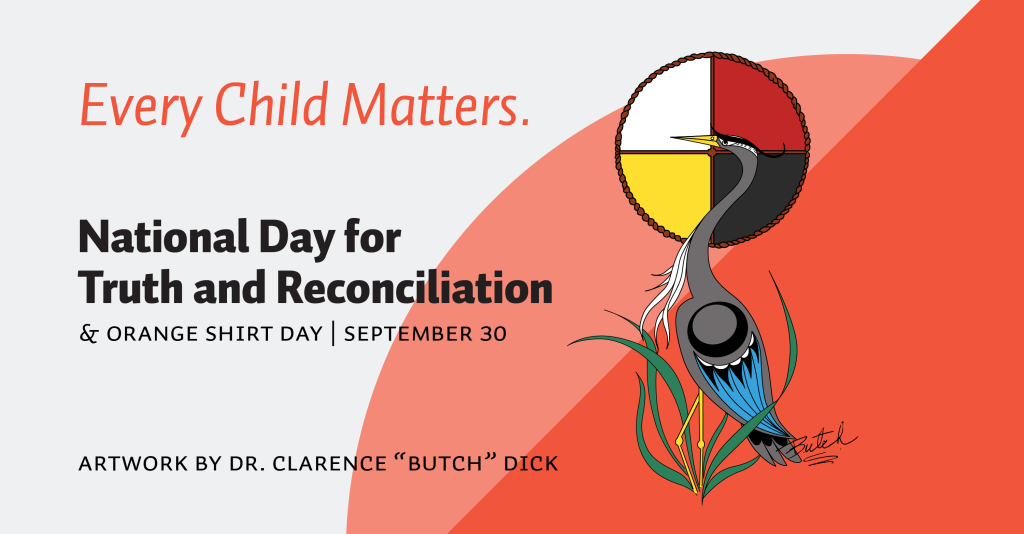
Royal Roads University is located on the traditional Lands of the Lekwungen-speaking Peoples, the Songhees and Esquimalt Nations.
Honouring Indigenous resilience
To honour the strength and resilience of Indigenous Peoples, Royal Roads University observes Orange Shirt Day and the National Day for Truth and Reconciliation Sept. 30.
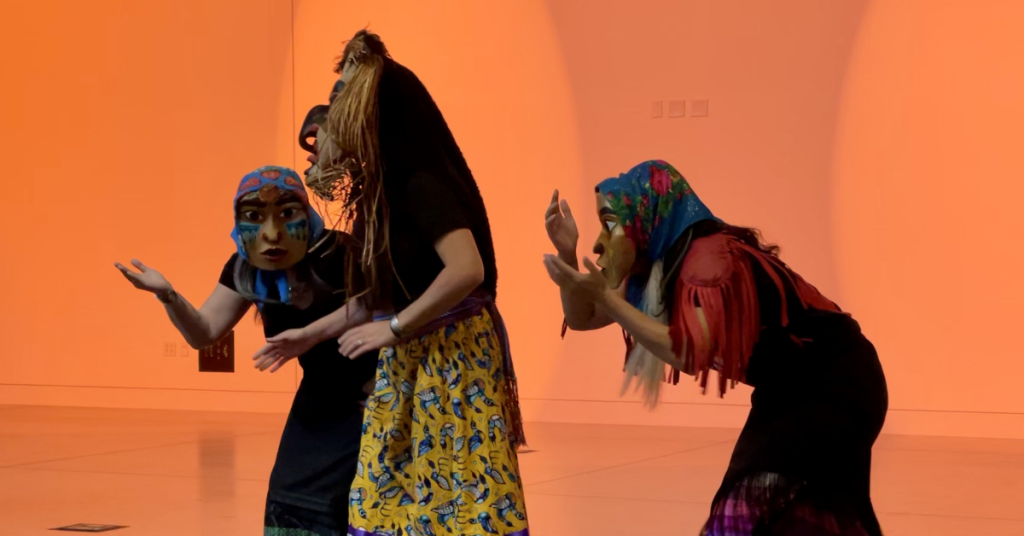
ANSWER2 Drum Group performs at the 2021 gathering for National Day for Truth & Reconciliation.
For generations, residential school survivors, their families, and their community members have been sharing their stories about the impacts of the Indian Residential School System that operated in Canada from the 1870s to 1996. They did so again during the Truth and Reconciliation Commission. One of the commission's 94 calls to action was for a national day to honour Indigenous children in residential school — those lives that were lost and those who survived.
The federal government has designated Orange Shirt Day on September 30 as a National Day for Truth and Reconciliation. The National Centre for Truth and Reconciliation has identified Truth and Reconciliation Week from September 27 to October 1.
At Royal Roads, we are grateful to the Elders and Old Ones of the Heron People Circle, who guide us forward and advance our commitment to implementing the Calls to Action and the UN Declaration on the Rights of Indigenous People in an Indigenization plan.
Voices
“My art is a way to give back to community and to support those on their healing journeys.”
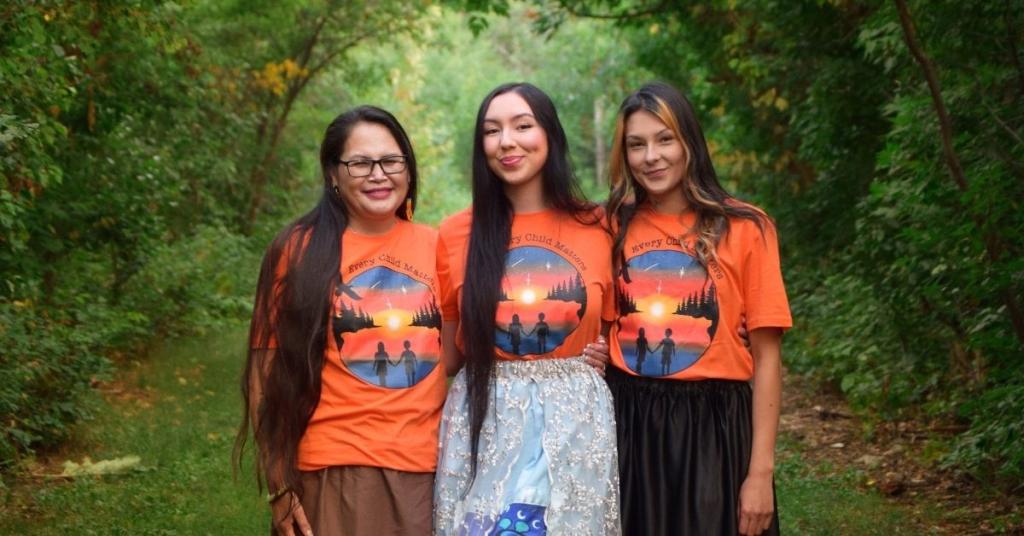
Brooklyn Rudolph (center), an alum of the Certificate in Indigenous Environmental Leadership program, credits her time at RRU with instilling in her the confidence to use her voice – and her art – to speak up.
As an Indigenous artist, Brooklyn Rudolph wears her heart on her sleeve. But this year, she’ll wear it on the front of an orange t-shirt, one she designed to honour survivors and all those affected by Residential Schools.
Rudolph, a member of the Pimicikamak Cree Nation in Manitoba, was the selected artist to collaborate with Walmart Canada through Indigenous Proud’s annual design contest this year.
A message from Lekwungen Elder Dr. Butch Dick
RRU Library digital display

In response to the Truth & Reconciliation Commission's calls to action, The Library is highlighting some of their collections of physical and digital resources. Find resources including faculty and student publications, video and audio resources and books related to Indigeneity and truth and reconciliation.
RRU Library digital display
2025 RRU events
Indigenous Learning Landmarks Tour
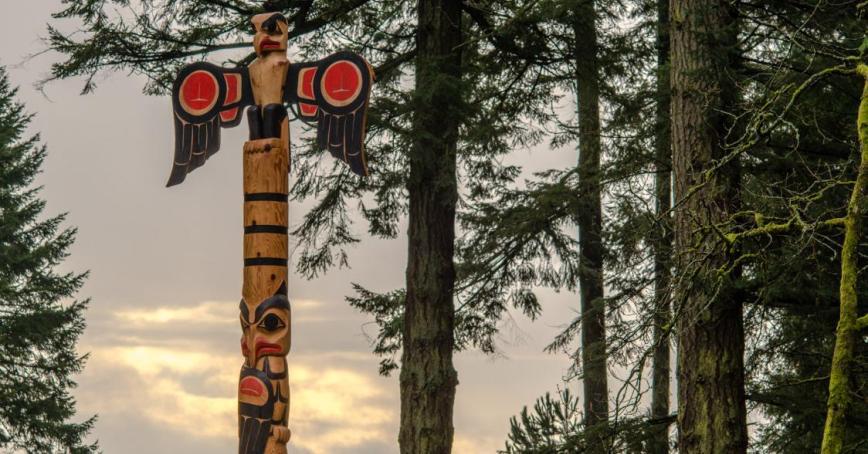
What can we learn from Indigenous art? What stories does a medicine garden hold? Join us Weds. Sept. 24 between 12:15 and 2 p.m. for a tour of Indigenous learning landmarks on our Colwood campus. The event is free and open to everyone.
Indigenous Learning Landmarks Tour
This event is free and open to the RRU community as well as the general public.
2025 community events
Raising the Survivors' flag
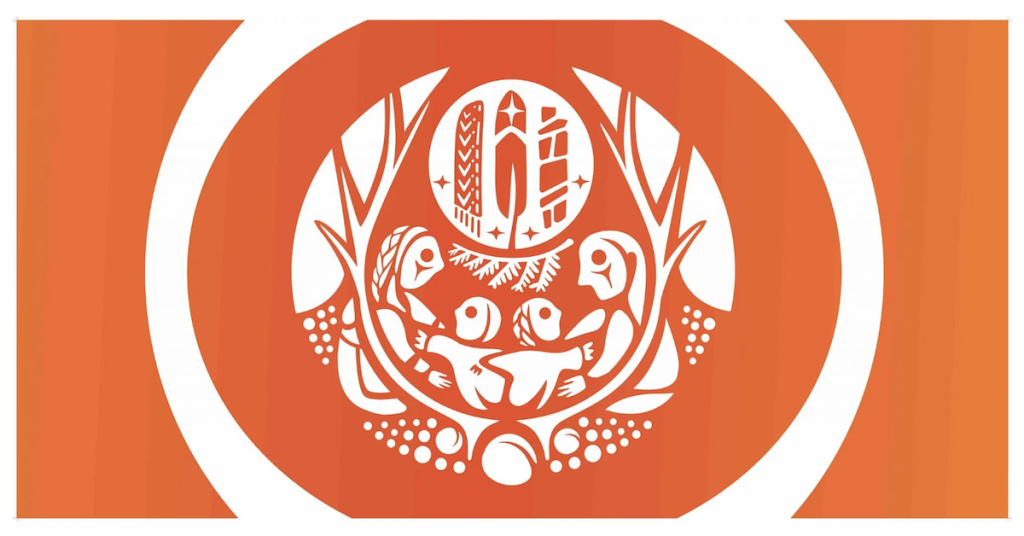
This year Royal Roads University will raise the Survivors' flag to honour residential school Survivors and all the lives and communities impacted by the residential school system in Canada. Each element depicted on the flag was carefully selected by Survivors from across Canada, who were consulted in the flag’s creation.
Read more about these elements and Survivors speaking about the significance of the flag.
Orange Shirt Day
Orange Shirt Day originates from the story of Phyllis Webstad from the Stswecem'c Xgat'tem First Nation.
At six years old, Phyllis had her new orange shirt taken from her on her first day attending the St. Joseph Mission Residential School near Williams Lake, BC.
Phyllis shared her story publicly for the first time 40 years later, on September 30, 2013. Her story sparked the Orange Shirt Day movement to recognize the colonial legacy of residential schools and to honour Indigenous Children, Survivors, and their families and communities.
Phyllis Webstad Orange Shirt Day Presentation
RRU Orange Shirt
Royal Roads is honoured to have an Orange Shirt Day design with artwork by Dr. Clarence "Butch" Dick of Songhees Nation and a member of the Heron People Circle.
This robust design speaks to the origins of the Heron People Circle and reinforces that Every Child Matters. RRU will share the proceeds with the Indian Residential Schools Survivors Society, Victoria Orange Shirt Day Society, and the RRU Heron People Circle. Limited quantities are available from the Campus Store.
Wear your orange shirt and share your response to reconciliation
RRU invites you to post a photo of you wearing an orange shirt and tag #RoyalRoadsUniversity. We’ll share a few here and on Twitter, Instagram, Facebook and LinkedIn.
We encourage you to reflect on two questions and include them in your post:
- What does the National Day for Truth and Reconciliation mean to you?
- What is your commitment to reconciliation?
Other ways to take action
Royal Roads community
Participate in an RRU ReconciliAction group and join fellow RRU community members in small groups of action. Contact Roberta Mason to learn more.
Canadian Centre for Diversity and Inclusion resources
- CCDI commemoration guide: National Day for Truth and Reconciliation / Orange Shirt Day
- CCDI educational guide: Indigenous inclusion
- CCDI educational guide: National Day for Truth and Reconciliation / Orange Shirt Day
- Indigenous Works: Tip sheet for National Day for Truth and Reconciliation
- Knowledge repository (sign up to log in): Indigenous Ally Toolkit, Reconciliation Toolkit for Business Leaders, Guide to acknowledging First Peoples and traditional land: Land acknowledgements for staff and volunteers + webinars
More ways
- Read articles and books by Indigenous authors and learn about the experiences of survivors and their families or host a discussion. (Check the RRU Library or Strong Nations Publishing for inspiration.)
- Watch movies by Indigenous filmmakers. (Check the RRU Library or Reel Canada for inspiration.)
- Learn the land acknowledgement in your area.
- Consider the roles you hold at home and work and how you can contribute to making positive changes that support reconciliation.
- Talk about and share what the National Day for Truth and Reconciliation means to you and how you are taking action toward reconciliation.
- Purchase an Orange Shirt from an Indigenous artist or company and wear it year-round.
Do you need support?
If you are navigating trauma or having a difficult time, support is available.
KUU-US Crisis Line for Indigenous People struggling with trauma
Adults/Elders: 250.723.4050
Youth/Children: 250.723.2040
Toll-Free: 1.800.588.8717
Indian Residential School Survivors Society
IRSSS provides essential services to Residential School Survivors, their families, and those dealing with Intergenerational traumas.
Toll-Free: 1.800.721.0066
Fax: 604.985.0023
Email: reception@irsss.ca
For the Royal Roads community
For Indigenous students: contact Indigenous Student Services for cultural, personal or other support.